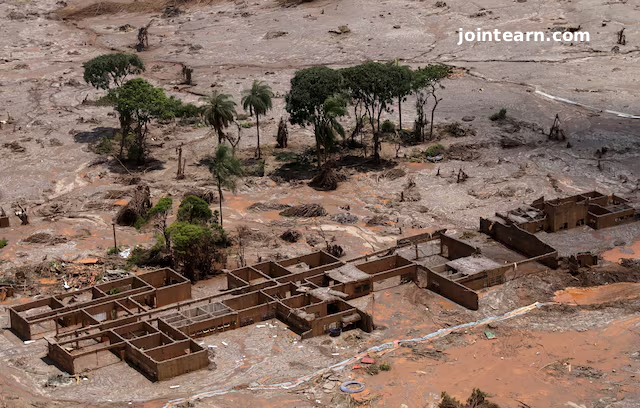
London, UK – November 14, 2025 – In a landmark ruling, London’s High Court has determined that BHP Group Ltd (BHP.AX) can be held liable for the catastrophic 2015 collapse of the Fundão dam in southeastern Brazil, a disaster that has been called one of the worst environmental catastrophes in the country’s history. The decision opens the door to a massive UK-based lawsuit previously valued at up to £36 billion ($48.32 billion).
Background: The Fundão Dam Collapse
The Fundão dam, part of the Samarco joint venture between BHP and Vale SA (VALE3.SA), burst in November 2015 in Mariana, Minas Gerais, unleashing a torrent of toxic mining sludge. The disaster killed 19 people, displaced thousands, devastated local communities, and caused extensive environmental damage, including the pollution of the Doce River and destruction of vast stretches of forest.
Hundreds of thousands of Brazilians, dozens of municipal governments, and around 2,000 businesses have joined the UK lawsuit against BHP, seeking compensation for the damages and long-term environmental impacts of the collapse.
Court Ruling: BHP Liable
Judge Finola O’Farrell, presiding over the case, ruled that the decision to raise the height of the dam unsafely was the “direct and immediate cause” of its collapse. This determination means that under Brazilian law, BHP bears legal responsibility for the disaster, despite the dam being a joint operation with Vale.
In response, BHP announced plans to appeal the ruling, insisting that the company will continue to contest liability in the UK courts.
BHP’s President of Minerals Americas, Brandon Craig, highlighted that 240,000 claimants in Brazil had already received compensation, noting that this factor would significantly reduce the size and potential value of claims in the UK-based action.
Environmental and Legal Implications
The Fundão dam disaster remains a stark example of industrial negligence and regulatory failure, prompting heightened scrutiny of mining operations and environmental safeguards in Brazil and worldwide. The ruling reinforces the principle that multinational corporations can be held accountable internationally for environmental catastrophes, even if local compensation programs exist.
Experts warn that the case may set a precedent for cross-border environmental litigation, especially for mining and resource extraction companies operating in developing countries with vulnerable communities and ecosystems.
Broader Impact
The ruling also puts focus on corporate governance and the responsibilities of multinational mining giants. As global investors increasingly emphasize environmental, social, and governance (ESG) compliance, BHP’s liability in the Mariana disaster could influence mining industry practices and investor confidence.
The UK lawsuit is expected to continue for several months, with appeals likely to be filed, but the High Court’s decision marks a critical milestone for victims of the Mariana disaster seeking justice and accountability.


Leave a Reply